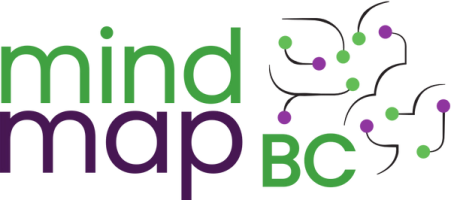Ann Davis Transition Society
Summary
Relationship counselling
 Peer Support
Peer Support Social groups and networking
Social groups and networking Individual counselling
Crisis counselling
Support groups
Information and referrals
Sliding Scale Available
Free
LGBQ+ Affirming
 Wheelchair Accessible
Wheelchair AccessibleRemote services
The Ann Davis Transition Society provides education, prevention, and support services to those affected by abuse or violence. It is a self-referring service meaning that clients do not need to have a referral from a doctor to utilize the services offered. Meeting with counsellors have mostly moved to remote sessions as a result of COVID-19 restrictions. Counselling services and legal advocacy are provided free of charge or at a nominal fee to all genders in one-on-one sessions, group sessions, couple sessions, and youth counselling. Specific counselling programs offered include Understanding Abuse Group, Women's Self-Management of Anger, Stopping the Violence Counselling, Connections (Shame Resilience Curriculum), Men's Self-Management of Anger, Men's Insight Group, Children In Between, P.E.A.C.E (Prevention Education Advocacy Counselling and Empowerment) Group, Connect Parent Group, and the Bridge to Healthy Relationships Program. In addition to the counselling services offered, transitional bursaries, food resources, housing, employment search support, and safety planning are available to those affected by abuse and violence. A community outreach centre was opened in 2020 to facilitate these services.
Ann Davis Transition Society's Diversity Statement: "Ann Davis Transition Society recognizes its responsibility as a leader in supporting a community that respects diversity and fosters social inclusion. The Society strives to deliver inclusive service, affirming the dignity of those we serve regardless of heritage (race, ethnicity, culture, nationality, linguistic origin, place of origin, citizenship, colour, ancestry), education, beliefs, creed (religion, faith, spirituality), gender, gender identity, age, sexual orientation, physical or mental health, physical or cognitive capabilities, socio-economic status and political belief. Diversity enriches community and the Society is committed to respecting, appreciating and celebrating the diversity of our clients, employees, students, volunteers, members, donors, funders and all community partners. We strive to increase understanding and acceptance of each other, thereby making us more compassionate human beings and strengthening the fabric of our community."
Want to learn more about this service’s work with Two-Spirit, trans, LGBQ+ people?
We invite all service providers listed on MindMapBC to answer the following questions. These questions were developed in collaboration with community members, researchers, and mental health and other service providers. They're intended to help us understand what a service provider or organization is doing to affirm and support sexual and gender diverse service users.
See below for responses for this listing.
Want to learn more about our screening questions and filters?
Do you collect and use preferred names (rather than legal names) for all communications?
—Yes
Are the forms used in your practice inclusive of various sexual orientations and gender identities (e.g., opportunities to fill in pronouns, etc.)?
—Yes
Are you and your colleagues aware of what specific barriers may exist for trans individuals accessing your services?
—Yes, to some extent
Are you and your colleagues aware of what specific barriers may exist for Two-Spirit individuals accessing your services?
—Yes, to some extent
Do you offer Indigenous 2S/LGBTQ+ specific resources, for example Indigenous Elders or Knowledge Keepers?
—No
Are you and your colleagues comfortable asking relevant questions about gender identity and sexual orientation?
—Yes
Are you and your colleagues aware of what specific barriers may exist for LGBQ individuals accessing your services?
—Yes
Do you and your colleagues ask clients about pronouns and use them appropriately?
—Yes
Do you and your colleagues have experience working with people who identify as living with a disability or chronic illness? Please tell us more about your experience and any training you have received. (For example, do you have experience working with people with diverse physical or cognitive abilities, or those who are living with specific chronic illness(es)?)
—Yes, to some extent
Can you and your colleagues distinguish gender/identity dysphoria/distress from mental health conditions?
—Yes, to some extent
Does your practice have gender-neutral washrooms?
—Not applicable (please explain why this is not applicable)
Most counselling services are offered remotely though there is a gender-neutral washroom facility on the premises.
Are there clear anti-discrimination policies that include gender identity, gender expression, and sexual orientation in your organization or practice?
—Yes
Are all individuals involved in service provision actively engaged in decolonizing their practices and/or organization? If yes, please type below what actions you and/or your organization are taking.
—Yes, to some extent
Are all individuals involved in service provision actively engaged in anti-racist practices, policies, and systems in their care model?
—Yes, to some extent
Address
9046 Young Road
Chilliwack, BC
V2P 4R6
Last updated: January 19, 2022
Request changes —

